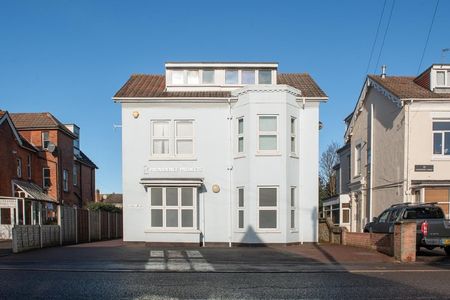
Written by:
Last Updated:
September 18th, 2025
Secondary Care Programme
Keep that sobriety momentum alive
Completing your primary rehab programme marks a major turning point. It’s a testament to the progress you’ve made, rebuilding your foundations, restoring self-belief, and embracing a healthier way of life. Yet, the journey doesn’t simply stop once residential treatment ends. The period that follows is often the true test of your progress, and secondary care isn’t just an optional add-on; it’s a crucial step that helps secure and strengthen the progress you’ve worked so hard to achieve.
What is Secondary Care?
Secondary care is the next step in your recovery journey after completing primary rehab treatment. While primary care focuses on breaking the physical cycle of addiction and establishing the foundations for sobriety, secondary care provides a structured, supportive environment where you can continue building confidence, resilience, and life skills.
Essentially, it acts as a bridge between intensive residential treatment and returning to full independence, giving you the space to practise what you’ve learned while still benefiting from professional guidance and a recovery-focused community. This stage often includes ongoing therapy, group work, relapse prevention planning, and practical support for areas like employment, education, or rebuilding relationships.
By staying in secondary care, you gain the extra time and structure needed to strengthen your recovery, minimise relapse risk, and make a smoother, more sustainable transition back into your everyday life.
Why Secondary Care Matters
Secondary care is the vital bridge between the structured environment of rehab and the realities of everyday life. While primary treatment equips you with the tools for recovery, secondary care ensures you have the guidance, structure, and support to put those tools into practice. It provides a safe space to navigate new challenges, strengthen coping strategies, and maintain momentum as you build a stable, independent, and fulfilling life in sobriety. Without this crucial step, many find the transition more overwhelming than expected, with secondary care, you’re never walking that road alone.
The Key Benefits of Secondary Care
- Continued Support: Maintain access to professional guidance and peer encouragement to help prevent relapse.
- Structured Routine: Gradually adapt to independent living while still having a reliable framework to follow.
- Skill Reinforcement: Strengthen the coping strategies and healthy habits learned in rehab through real-world application.
- Emotional Stability: Access therapy and group work to process new challenges in a safe, supportive setting.
- Confidence Building: Develop resilience and self-belief as you take more responsibility for your recovery journey.
Who Is Secondary Care For?
Secondary care is tailored for people who have completed a structured primary rehab programme but recognise that recovery doesn’t end at discharge. It’s for those who want to protect the progress they’ve made and give themselves the strongest possible foundation for lasting sobriety.
It is especially valuable for:
- Those in early recovery: The first few months after rehab can be the most vulnerable. Secondary care provides the time and space to adapt gradually, without the immediate pressures of full independence.
- Individuals at high relapse risk: If home life, work stress, or certain social situations may put your recovery at risk, secondary care gives you a safe buffer while you strengthen your resilience.
- People rebuilding relationships and routines: Recovery often means repairing damaged relationships and creating new, healthier habits. Secondary care offers guidance and accountability during this delicate process.
- Those who thrive with accountability: Regular check-ins, therapy sessions, and peer support can keep motivation high and help you stay on track.
- Anyone seeking extra stability: If you feel uncertain about facing everyday challenges alone, secondary care provides a reassuring safety net.
Choosing secondary care is not about needing “more rehab”; it’s a sign of strength, self-awareness, and commitment to your future.
How Secondary Care Works at Providence Projects
Secondary care at Providence Projects, our Bournemouth centre, is more than a follow-up to rehab, it;s a dedicated phase of recovery, exclusively designed to provide extended care and relapse prevention. It specialises in bridging the gap between the structure of primary treatment and the independence of everyday life.
Our programme blends therapeutic work opportunities for real-world practice, ensuring clients consolidate their progress, strengthen coping skills, and build the confidence to manage life’s challenges long after treatment ends.
tackle complex challenges while building the skills to face them outside treatment.
Therapy topics you’ll cover:
- Building self-esteem and confidence
- Understanding boundaries and creating healthy relationships
- Managing anxiety and stress with practical tools
- Learning to spot early relapse warning signs
- Starting the 12-Step Programme (first three steps)
- Same-sex group therapy every two weeks for safe, focused discussions
Workshops, group exercises, and take-home assignments keep the learning active long after the session ends.
- Clients move around in buddy groups of three, ensuring no one faces challenges alone.
- Regular drug and alcohol testing keeps the environment safe and free from temptation.
This shared responsibility fosters both personal growth and mutual trust.
- Identify personal triggers and risks
- Build a reliable daily routine
- Strengthen your sober support network
- Create contingency strategies for high-risk moments
By the end, you’ll leave with confidence and a plan you can put into action immediately.
- Cooking your own meals
- Budgeting for your food and essentials
- Managing your daily routine
It’s a safe environment to practise autonomy before returning fully to independent living.
- Beach walks and coastal activities to connect with nature
- Team sports like volleyball, which encourage camaraderie
- Weekly yoga sessions to promote mindfulness and mental clarity
These experiences strengthen not just your recovery, but your overall quality of life.
The Outcome
By the time you complete secondary care at Providence Projects, you’ll have:
- A stronger support network
- Practical coping skills you’ve already tested in the real world
- Confidence in your ability to live independently
- A clear plan for maintaining long-term sobriety
This is more than just “the next step”; it’s the foundation for a recovery that lasts.
Why Choose Secondary Care with UKAT?
Choosing the right secondary care programme is crucial to sustaining long-term recovery. UKAT’s approach stands out because it combines proven clinical expertise with a supportive, community-focused environment, all tailored to your individual journey.
- Specialised Extended Care: Our dedicated programme at Providence Projects is designed specifically for relapse prevention and building independence, not just a generic aftercare service.
- Experienced Professionals: You’ll work alongside highly trained therapists who understand the complexities of addiction recovery and know how to guide you through this critical transition.
- Balanced Structure and Freedom: Our unique model separates living accommodation from therapy, encouraging personal responsibility while ensuring professional support is always available.
- Holistic Recovery Focus: Beyond therapy, we integrate wellbeing activities, peer support, and life skills development, addressing mind, body, and spirit for lasting change.
- Safe and Supportive Environment: Regular drug and alcohol testing and carefully organised peer groups help maintain a secure, sober space where recovery can flourish.
- Proven Success: Our tailored relapse prevention planning and immersive therapy ensure clients leave equipped with practical tools and confidence to sustain their sobriety.
Secondary care with UKAT is a vital stepping stone, but it’s not the final destination. For those ready to embrace even greater independence while maintaining strong community support, our Sober Living Programme offers the next stage in your recovery journey.
When you choose UKAT for secondary care, you’re investing in a programme that truly prepares you for life beyond treatment, because recovery doesn’t end when rehab does.
Ready to take the next step in your recovery?
Contact us today to learn more about our Secondary Care Programme and discover how we can support your journey toward lasting sobriety. Your future starts with the right support. Let’s build it together.








